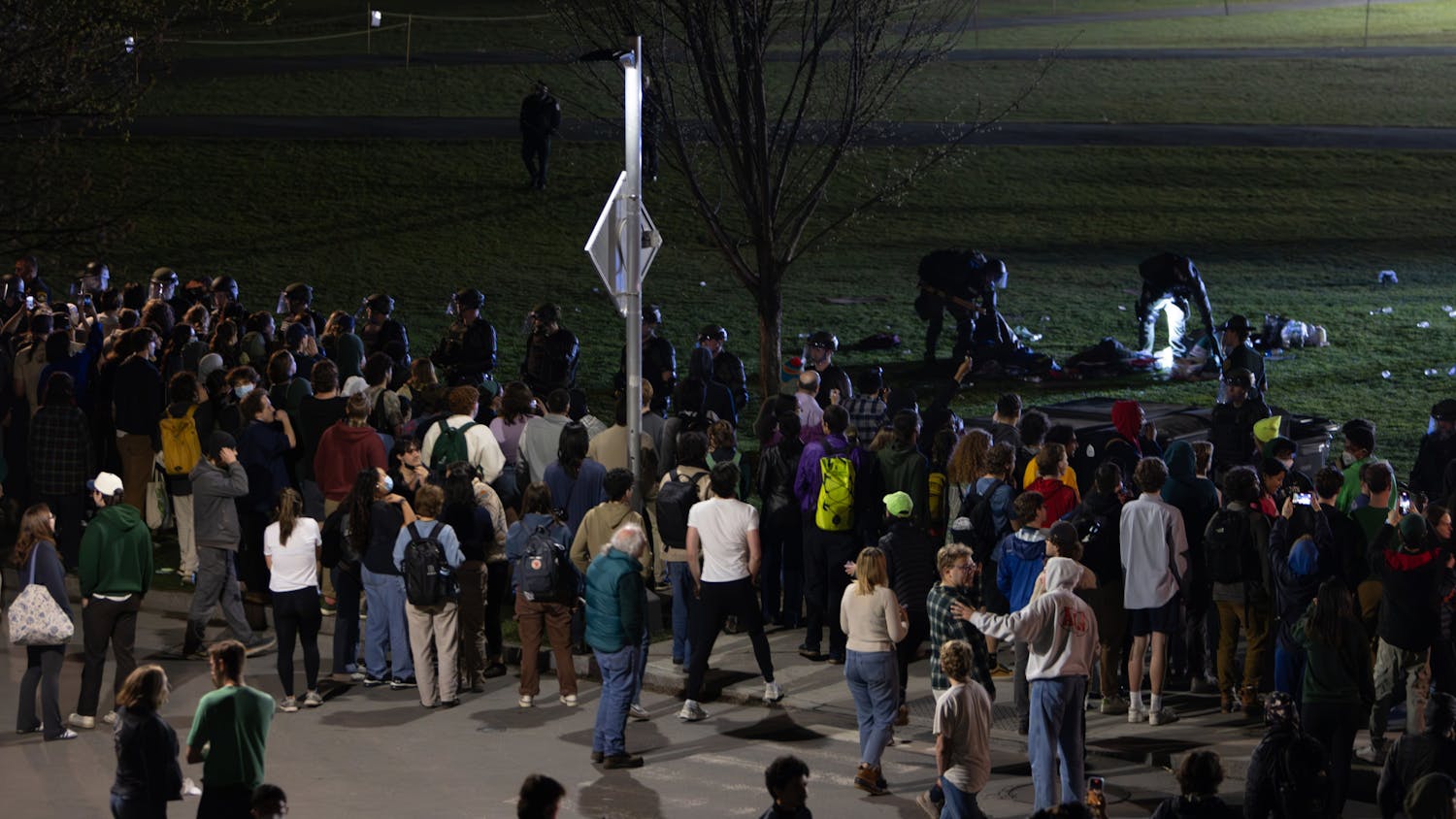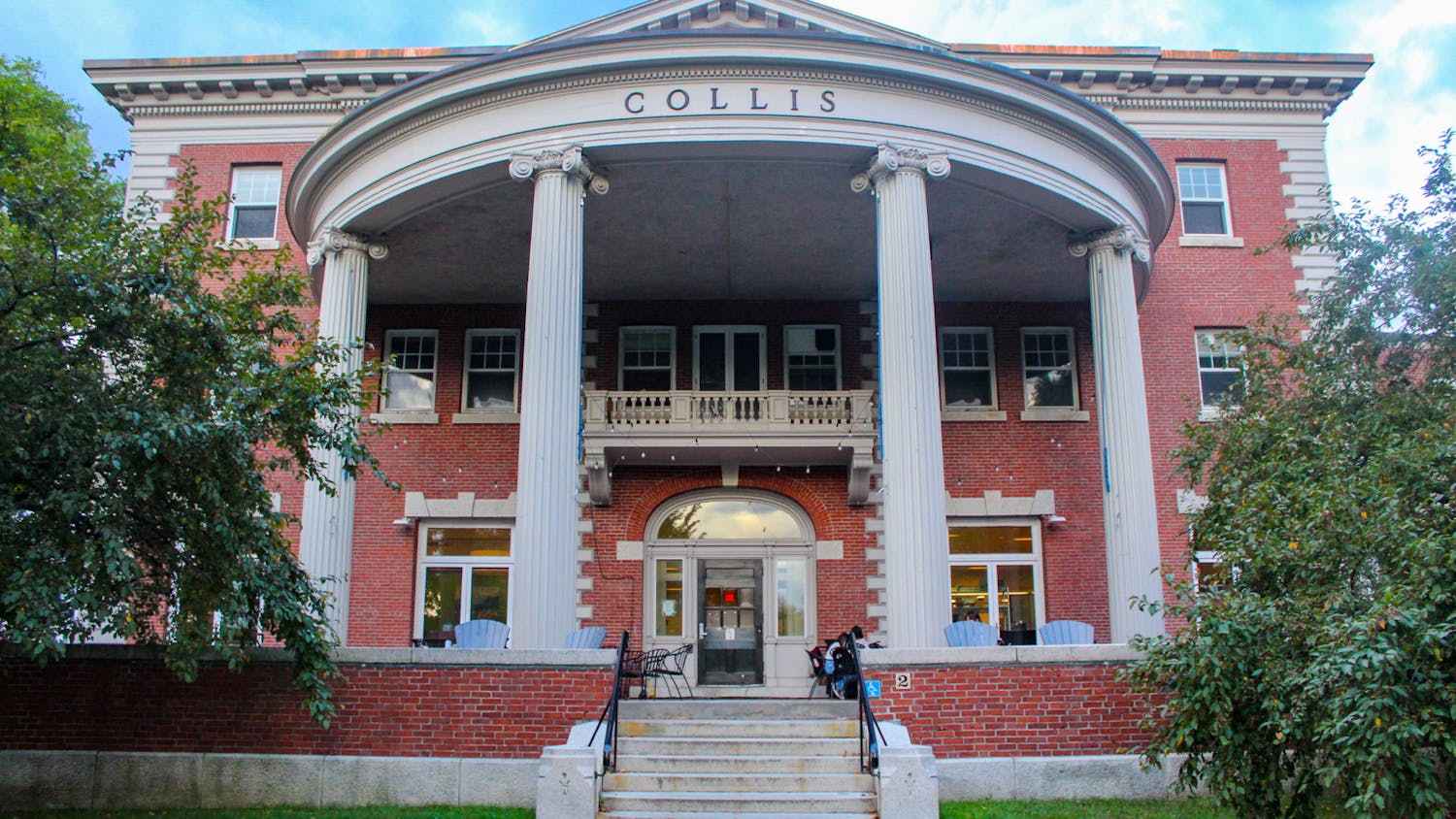The panelists, selected by Native American studies professors Melanie Benson-Taylor and Vera Palmer, included the Chickasaw nation's writer-in-residence Linda Hogan, Native American novelist Thomas King, nonfiction author Helen Hoy, who is also King's wife, and Native American novelist Stephen Graham Jones.
"We were primarily looking for an excuse to bring our favorite authors to campus," Taylor told the audience.
Hogan presented a poem titled "Turtle Watchers" and spoke about her nature-themed novels. King, a silver-haired man who entertained the audience with a string of sexual innuendos, spoke about activism work and his path to become a satirical writer.
"You can rant and rave all you want, you can have history on your side it doesn't matter, because most people do not want to be yelled at," King said. "My answer was satire. Satire was a wonderful way to get really close to somebody, get the thinnest of knives, leaving little cuts here and there. There is still an opportunity for everyone to chuckle."
Hoy, a former professor at the University of Guelph, spoke about her career in academic writing, in which she analyzes native texts, teaches and reads from perspective of a cultural outsider.
Speaking with a humorously monotonous, colloquial tone, Jones read an excerpt of a short story from his collection "Bleed into Me," using the voice of a character confronted with Native American stereotypes.
After speaking, the panelists fielded questions from the audience, which was largely composed of students and Upper Valley residents.
A female audience member asked the panelists how she should respond to the racial insults and jokes she faces as a Native American.
"You have to just get over it," Hogan replied. "I can't let other people ruin how I feel all the time."
The panelists said they used their writing to respond to racism and bigotry.
"I thought I could figure all the ways racism could come at you, but people are so damn inventive sometimes," King said. "That famous Native sense of humor, I guess that's what gets us through."
Taylor and Palmer struggled to decide who to invite, but narrowed their search by looking for writers who had published recent memoirs and autobiographical works.
"What we're trying to do is not simply show what Native American studies has accomplished at Dartmouth, but to be really looking ahead and looking at ways native American studies is keeping pace with most pressing issues are in Indian country," Taylor said in an interview.
The symposium series commemorates the inception of the College's Native American Studies department 40 years ago. In 1972, former College President John Kemeny rededicated Dartmouth to its original purpose of educating Native American students.
Taylor said she was impressed with panel's turnout and that students seemed to be the most engaged audience members.
Ma'Ko'Quah Jones '14, a government and Native American Studies double major who attended the panel, said she would like to see a greater turnout from community members outside the department.
"Dartmouth College and outside community haven't recognized the value of the Native American studies department and how unique it is to have this big of a program at this level," Jones said. "The people who work really hard to make it what it is today don't get the credit they deserve."
Jones transferred to Dartmouth in 2011 from a tribal college in Kansas after being recruited by admissions' Native student outreach, she said.
Dartmouth recently admitted the largest class of Native American students in College history last month, up 12 percent from last year.
The College's initiatives to draw more Native American students include visiting schools and coordinating with tribal communities. Dartmouth benefits from being a "household name" in many Native American tribes, said Steven Abbott, who oversees the College's outreach to Native American students.
The department's strength and interdisciplinary work in history, science and anthropology draw prospective students, Abbott said.
"Being an interdisciplinary program allows student to focus on things that are important to them, and tie together their ultimate career goals of working with a tribe nation or community," he said.
The department is finalizing plans for an off-campus program, in which students would work in pueblo communities in New Mexico, department chair Bruce Duthu said. Professors have already made two site visits, and Duthu expects the Institute for American Indian Arts to host the program.
The department has seen significant growth since Duthu, a member of the Class of 1980, was a student at the College.
The department, then comprised two part-time professors. Today the department has grown to eight full-time faculty members, seven of whom are tenured or tenure-track.




